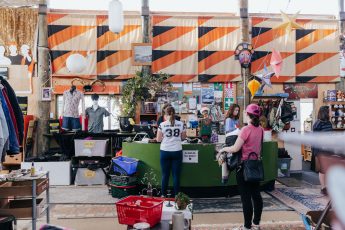Wānaka’s blessed with a community of individuals and organisations who care for this place by going above and beyond every day to protect the environment at its heart.
By supporting Love Wānaka, you support their mission, and ours, of a thriving future for this place.
Read on about their mahi below!
The Aspiring Biodiversity Trust exists to protect and enhance indigenous biodiversity within the Makarora and Wilkin Catchments, from Ridge to River – whilst connecting people with nature and raising awareness for the importance of our natural world.
The trust delivers scientific-based threatened species monitoring and evaluation, invasive predator control programmes, and environmental education – promoting endemic biodiversity restoration and enhancement within the Makarora area.
The area is part of Mt Aspiring National Park and the UNESCO World Heritage site, and encompasses many of Aotearoa’s iconic and highly threatened species such as rock wren pīwauwau, kea and whio, and the beech/podocarp forests and braided rivers that these species rely on.
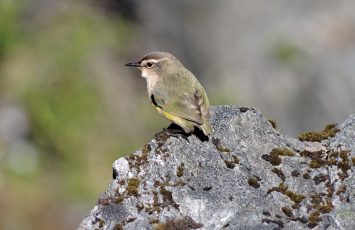
Disrupting our dependency on disposables, DISHrupt™ provides onsite solutions to events, through the provision of reusable dishes and cups. Since 2018, DISHrupt™ has displaced the use of 50,000 disposables by providing reusable dishes.
You may have seen DISHrupt™ at Luma, Queenstown Winter Festival, Lake Hayes A&P Show, Multicultural Festival and at many smaller events across the district!
By hiring DISHrupt™ for your event, not only will you be helping in the fight against disposable serveware, you will also help spread awareness of the awful environmental impact of single-use items.
DISHrupt™ is powered by Sustainable Queenstown.
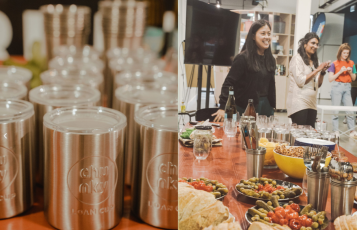
Friends of Bullock Creek is a grassroots community organisation that exists to protect and enhance the environment of Bullock Creek from headwaters to its entry point into Lake Wānaka.
The Creek is the lifeblood of Wānaka. The spring-water comes from the Cardrona Gravel Aquifer, feeding Bullock Creek’s beautiful wetlands at the Fish & Game hatchery springs site and flowing through the residential and commercial heart of Wānaka, and ultimately into the lake.
Bullock Creek is a big part of Wanaka’s sense of place, recreation, and wellbeing, and is very important for our cultural connections. Protecting the ecological health of the Creek and the wetlands from pollution and exotic weeds enables carbon storage, water purification and flood management; and encourages healthy ecosystems where indigenous plants, animals and fish can flourish.
Walk the beautiful boardwalk track through the wetlands or lend a hand at one of their community volunteer days.
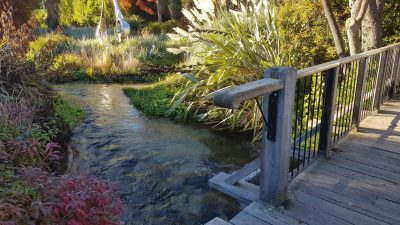
Grow Wānaka is a community garden and food hub supporting regional food resiliency.
They divert food scraps from landfill and use them to build healthy soil and grow nutritious kai (food) with the help of a community of volunteers. They hold regular planting sessions and working bees on weekends throughout the growing season and have a free food-waste drop-off service for households and individuals.
Check out how Grow are building community through collaboration.
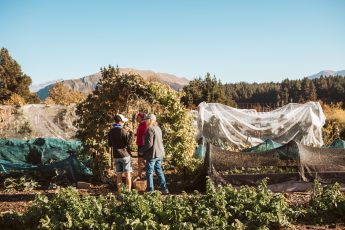
Plastic Free Wānaka is on a mission to help the Wānaka community reduce single-use plastics.
PFW’s focus is to create simple waste reduction solutions for all ages, using creativity to share their message, making steps to help to save our planet fun and achievable. They love to talk about what we CAN do when it comes to waste reduction. They help to inspire, empower, and lead the way through creative initiatives, workshops, and fun events.
SUCFree Wānaka is their community-based campaign with the ultimate goal of Wānaka becoming Aotearoa’s first single-use cup free town. Before its establishment, over one million plastic-lined, non-recyclable cups were piling into landfills each year. Twenty-four cafes and caravans in Wānaka have now implemented cup-lending schemes or libraries and 12 are completely SUCfree, saving 180,000 cups from landfill annually in this region alone.
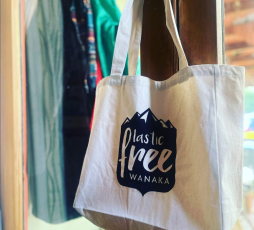
Protect Our Winters (POW) connects the outdoor community to take climate action.
POW helps provide the tools, the platform, and the connections for passionate outdoors people, and anyone who loves winter to generate positive climate action. POW focuses on education and advocacy to help empower the outdoor community and create the systemic change needed to preserve New Zealand’s alpine playground, and protect the places we live and play from climate change.
POW hosts events in both Wānaka and Queenstown throughout the year and is currently advocating for electric public transport connecting Wānaka and Queenstown.
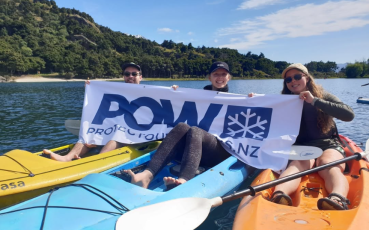
The Matukituki Charitable Trust has been established to ensure that the valley’s natural attributes and ecological treasures are protected and enhanced, now and into the future. The Trust aims to increase the population of all native flora and fauna, but particularly the endemic species that make the valley so special.
The Matukituki valleys are iconic areas of significant beauty within the Mt Aspiring National Park. Steeped in history from before the first ascent of Tititea Mt Aspiring, the West Matukituki valley is a showcase destination, drawing over 80,000 visitors a year to explore numerous tracks and routes leading from the valley floors to the high alpine peaks and glaciers the area is known for.
Whilst this is a place for recreation – of exploring and connecting with nature – it’s vital that these valleys are protected, and that those who explore this region are conscious of the impact they’re having.
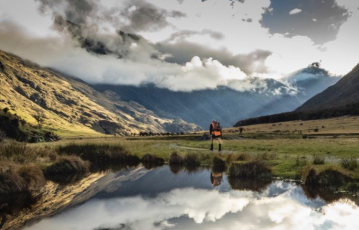
Imagine a Sanctuary where not only is the dawn chorus once again heard in the mountains and in our backyards, but where lizards, bats and native bugs also flourish. Such a vision can be achieved, but it needs consistent and cohesive action.
The Southern Lakes Sanctuary aims to protect an unrivalled array of natural taonga in the vast, breathtaking catchments of Lake Wānaka and Lake Whakatipu. The Southern Lakes Sanctuary Trust creates enduring partnerships with local community groups, iwi, businesses, land owners, councils and government.
The Sanctuary enriches the historical and cultural value of our region by conserving, restoring, and protecting natural ecosystems and building resilience in wildlife populations. The Sanctuary also seeks to create and sustain livelihoods and recreational opportunities for present and future generations.
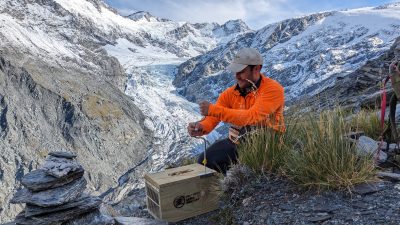
Te Kākano’s mission is to inspire native habitat restoration through propagation, education, and participation.
They are assisted by hundreds of volunteers each year who support the growth of native, eco-sourced plants at their community nursery, as well as the planting and maintenance of native trees at numerous restoration sites in the Upper Clutha basin. Their work benefits the community as they engage people to care for their land and work together to regenerate te taiao (the environment); this is especially important for the younger generations as they are the ones who will continue this legacy into the future.
Te Kākano host bi-weekly volunteer sessions at their nursery, as well as regular planting events in stunning locations throughout the Wānaka region – all are welcome. Check out the Love Wānaka events page for upcoming dates or click through to Te Kākano’s website to find out more.
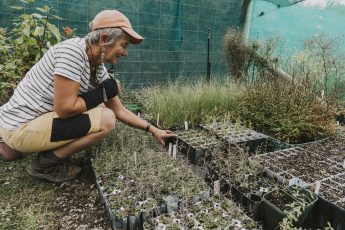
The Upper Clutha Wilding Tree Group’s mission is to protect our outstanding natural landscapes and indigenous biodiversity from the threat of wilding trees in the Upper Clutha region.
By working collaboratively with landowners, stakeholders, and passionate locals, the group raises awareness of the issue of wildings, reduces spread, and removes seed sources.
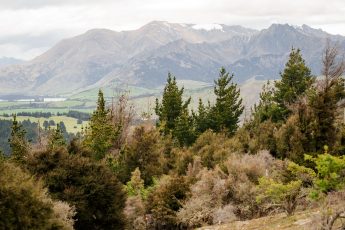
WAI Wānaka’s kaupapa is to protect and enhance ecosystem health and community wellbeing in one of New Zealand’s most important and sensitive environments – the catchments of the Upper Clutha.
By working together, they empower rural, urban and visitor communities to understand their water, their environment, and their impact. Taking a whole-of-basin approach, they encourage, utilise, and facilitate science, community action and educational programmes relating to these purposes.
The responsibility for our waterways is especially important in this region, given our location at the headwaters of the mighty Mata-Au Clutha River.
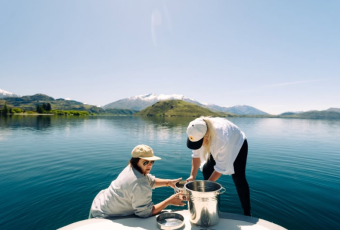
Wānaka Backyard Trapping is giving the local native wildlife a hand by trapping predators around the Wānaka-Hāwea-Luggate region.
Their aim is to see thriving populations of native wildlife (birds and skinks) in the Upper Clutha; by decreasing the numbers of introduced pests that threaten our native flora and fauna, on public land; by encouraging community trapping participation at the neighbourhood level (they even run a Trap Library); and by raising the profile of our unique flora and fauna amongst New Zealanders and travelers in the Upper Clutha area.
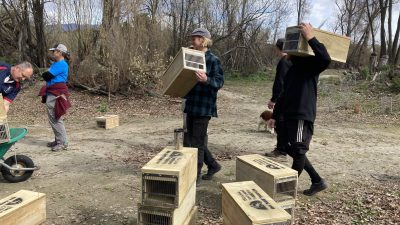
Make, share, and repair at the Wānaka Community Workshop.
The Wānaka Community Workshop is an inclusive community space where people can access the tools, materials, learnings, and physical room necessary for building and repair projects. Members share a range of skills, using the facilities for their own projects, building for the community, hosting and attending workshops, or simply enjoying a cup of tea and some companionship.
If you want to make a difference here in Wanaka, drop in to the Workshop at 15 Gordon Road between 9am and midday every Tuesday or Thursday. The team always have projects on the go and would welcome your input.
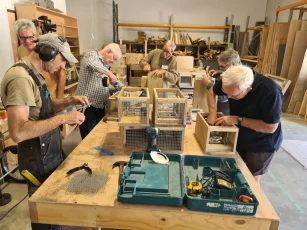
Wao is a non-profit based in Wānaka that supports community transition to a regenerative, fair, and zero-carbon future.
Wao’s programs and events are focused on mainstreaming sustainability and fostering diversity – not just in Wānaka but across the country. They educate, inspire, and enable collective climate action, catalyse learnings, and bring communities together for change.
The Wao Summit in October is the Southern Lakes’ annual festival of sustainability, with six days of workshops, kōrero, films, tours and community events about creating tangible, long term social and environmental change. They also run Green Drinks every two months – an opportunity for the community to connect with important sustainability topics and each other. These events are open to everybody so bring a friend, grab your tickets and dive into a topic.
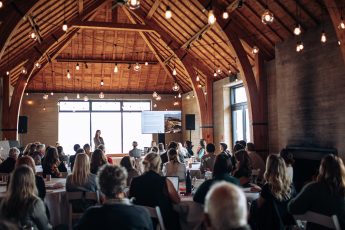
Wastebusters is a community enterprise leading the way to zero waste.
Their core services include public, business, and event recycling and education, advocacy, and support for waste minimisation and plastic-free solutions. Beyond this though, Wasties has built a community for change. Their reuse store has a cult-like following – inspiring locals and travellers alike to reduce, reuse, and recycle. By shopping with them, you’re doing so without the waste and are giving valuable resources a second chance.
Bring the family down to Wastebusters for a zero-waste experience, or, click here to hear from their team on the ins and outs of life at Wasties and why it’s deemed a local institution.
